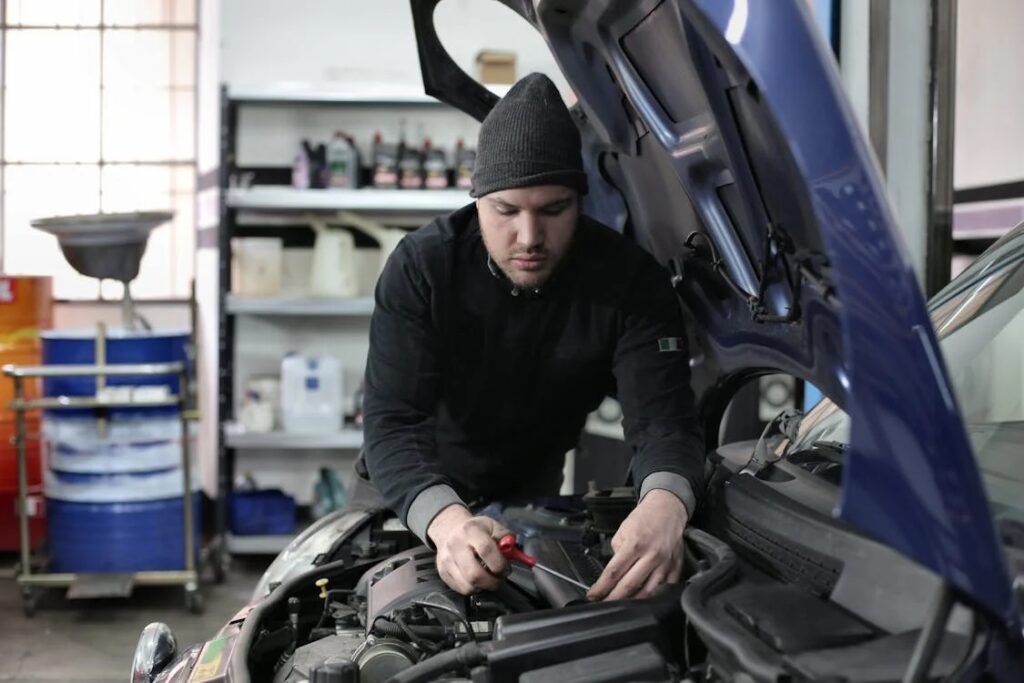Owning a car in Nigeria comes with its unique set of challenges and responsibilities. From navigating through the bustling city traffic to enduring the rough and unpredictable road conditions, your vehicle is constantly put to the test. Proper car care is not just about maintaining the aesthetics of your vehicle; it’s crucial for ensuring safety, enhancing performance, and extending the lifespan of your car.
In this blog post, we will delve into the essential maintenance tips that every Nigerian car owner should know. Whether you’re a new driver or a seasoned one, these practical tips will help you keep your car running smoothly and efficiently, no matter the conditions. Let’s explore the key aspects of car care and how you can implement them to enjoy a reliable and trouble-free driving experience.
1. Regular Oil Changes
Regular oil changes are the lifeblood of your car’s engine. Oil lubricates the engine’s moving parts, reducing friction and preventing wear and tear. In the Nigerian climate, with its high temperatures and dusty conditions, it’s even more crucial to keep your engine oil in check. The recommended frequency for oil changes can vary, but a good rule of thumb is every 5,000 to 7,500 kilometers or every six months, whichever comes first. Always check your owner’s manual for the manufacturer’s guidelines.
Choosing the right oil for your vehicle is essential. Synthetic oils, while more expensive, tend to offer better performance and protection, especially in extreme temperatures. Ensure you select oil that meets the specifications recommended by your car’s manufacturer. Regularly check the oil level using the dipstick and top up if necessary to avoid running your engine dry, which can cause severe damage.
2. Tire Maintenance
Tire maintenance is critical for safety and performance. Properly inflated tires ensure better fuel efficiency, improved handling, and longer tire life. Nigerian roads can be harsh, so it’s vital to check your tire pressure at least once a month. Under-inflated tires can lead to blowouts, while over-inflated tires can wear out unevenly. Always use a reliable gauge and follow the manufacturer’s recommended pressure levels.
Rotating your tires every 10,000 kilometers can help ensure even wear, extending their lifespan. Additionally, regularly inspect your tires for any signs of damage, such as cuts, punctures, or worn tread. Adequate tread depth is crucial for maintaining traction, especially on wet roads. If the tread is worn down to 1.6mm, it’s time to replace your tires. Choosing tires designed for Nigerian road conditions can also enhance your driving experience and safety.
3. Battery Care
A reliable battery is essential for your car’s operation. The hot Nigerian climate can accelerate battery fluid evaporation, leading to a shortened lifespan. Check your battery regularly for corrosion on the terminals and ensure it is securely mounted. Clean any buildup with a mixture of baking soda and water to prevent poor connections. Most car batteries last between three to five years, but regular maintenance can help you get the most out of yours.
Keep an eye out for signs of a weakening battery, such as dimming headlights or difficulty starting the car. If you experience these issues, have your battery tested and consider a replacement if necessary. Knowing how to properly jump-start your car can be a lifesaver in emergencies. Keep a set of jumper cables in your car and familiarize yourself with the process to avoid being stranded.
4. Brake System Check
Your car’s brake system is its most crucial safety feature. Regular brake inspections are essential to ensure your vehicle can stop effectively when needed. Pay attention to signs of brake wear, such as squeaking noises, a spongy brake pedal, or longer stopping distances. These symptoms could indicate worn brake pads or low brake fluid, both of which need immediate attention.
While some brake maintenance tasks can be done at home, such as checking the brake fluid level, others require a professional touch. It’s recommended to have your brakes inspected by a mechanic every 10,000 kilometers or annually. This inspection should include checking the brake pads, rotors, and brake lines for wear and tear. Ensuring your brake system is in top condition is vital for your safety and that of other road users.
5. Fluid Levels and Leaks
Maintaining proper fluid levels is crucial for your car’s performance and longevity. Your vehicle relies on several essential fluids, including coolant, transmission fluid, brake fluid, and power steering fluid. Regularly check these levels, especially before long trips, to ensure everything is within the recommended range. Low fluid levels can lead to overheating, poor handling, and even severe engine damage.
Leaks are a common issue that can cause significant problems if not addressed promptly. Regularly inspect the ground under your car for any signs of leaking fluids. Each type of fluid has a distinct color, such as red for transmission fluid and green or orange for coolant. If you notice any leaks, have your car inspected by a mechanic to identify and fix the source. Preventive maintenance can save you from costly repairs down the road.
6. Air Filter Replacement
Air filters play a crucial role in maintaining your engine’s performance by preventing dirt, dust, and debris from entering the engine. In Nigeria’s dusty environment, air filters can become clogged more quickly, reducing fuel efficiency and performance. It’s recommended to check your air filter every 10,000 kilometers and replace it if it appears dirty or clogged. A clean air filter can improve fuel economy and prolong engine life.
Replacing an air filter is a relatively simple task that can be done at home with basic tools. Consult your vehicle’s manual for the location of the air filter and the recommended replacement procedure. Regularly changing your air filter ensures that your engine receives clean air, enhancing combustion and reducing emissions. This small maintenance task can have a significant impact on your car’s overall performance.
7. Lights and Electrical System
Ensuring that all your car’s lights are functioning properly is vital for safety. Regularly check your headlights, brake lights, turn signals, and interior lights. Faulty lights not only pose a safety risk but can also lead to fines. Replace any burnt-out bulbs promptly, and consider keeping spare bulbs in your car for emergencies.
The electrical system is another critical component that requires attention. Check the battery connections for corrosion and ensure all wiring is intact. If you notice any electrical issues, such as flickering lights or malfunctioning accessories, have your car inspected by a professional. A well-maintained electrical system ensures that all components, from the starter to the lights, function reliably.
8. Regular Washing and Cleaning
Keeping your car clean is more than just about aesthetics; it also protects your vehicle from damage. Regular washing removes dirt, dust, and grime that can cause scratches and rust, especially in Nigeria’s dusty environment. Use a mild car shampoo and a soft sponge to clean the exterior, and avoid harsh chemicals that can damage the paint.
The interior also requires attention to maintain comfort and value. Vacuum the seats and carpets regularly, and clean the dashboard and other surfaces with appropriate cleaners. Protect leather seats with a suitable conditioner to prevent cracking. Regular cleaning not only makes your car look good but also preserves its resale value and ensures a pleasant driving experience.
9. Windshield and Wiper Maintenance
A clear windshield is essential for safe driving. Regularly inspect your windshield for chips and cracks, and repair them promptly to prevent them from spreading. Clean the windshield regularly, inside and out, to ensure maximum visibility. Using a good quality glass cleaner can help remove stubborn dirt and streaks.
Wiper blades are crucial for maintaining visibility during rain. Check your wiper blades for signs of wear, such as streaking or skipping, and replace them if necessary. It’s recommended to change your wiper blades every six months to a year. Also, keep your windshield washer fluid topped up to help clear away dirt and debris while driving.
10. Professional Inspections
While regular DIY maintenance is essential, professional inspections are equally important. A qualified mechanic can spot issues that may not be visible to the untrained eye. Schedule a comprehensive inspection at least once a year or every 20,000 kilometers. This inspection should cover all major systems, including the engine, transmission, brakes, and suspension.
Finding a reliable mechanic in Nigeria can make a significant difference in your car’s maintenance. Look for a mechanic with good reviews and a reputation for honesty and quality work. Building a relationship with a trusted mechanic ensures that your car receives the best care, helping you avoid unexpected breakdowns and expensive repairs.
Conclusion
Maintaining your car in Nigeria involves a combination of regular checks, timely replacements, and preventive measures to combat the challenges posed by the local climate and road conditions. By following these essential maintenance tips, you can ensure your vehicle remains in peak condition, offering reliable performance and safety.
Remember, car care is not just about keeping your vehicle looking good; it’s about ensuring your safety and the safety of others on the road. Regular maintenance can prevent minor issues from becoming major problems, saving you time and money in the long run. Implement these tips, stay proactive, and enjoy a smooth and trouble-free driving experience.
Additionally, taking care of your car also involves knowing its whereabouts and ensuring its security. At Track Org, we provide advanced car tracking solutions that give you peace of mind. Our state-of-the-art tracking systems allow you to monitor your vehicle in real-time, ensuring its safety and helping you recover it quickly in case of theft. Protect your investment and enhance your car care routine with Track Org’s reliable tracking services.
If you have any questions, need further advice, or want to learn more about our car tracking solutions, feel free to reach out. Share your own car care tips or experiences in the comments below. Happy driving, and stay safe on the roads!


